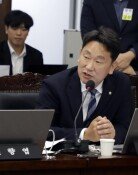[Editorial] Keeping a Current Account Surplus Is Urgent
[Editorial] Keeping a Current Account Surplus Is Urgent
Posted March. 02, 2009 06:39,
Korea posted a current account deficit of 1.36 billion dollars in January, its first red figure in four months. The biggest culprit was the deficit in the balance of goods of 1.46 billion dollars due to falling exports in the face of the worldwide economic slump. Though the deficit in the service balance including that of travel slightly shrank, it failed to make up for losses elsewhere.
Posting a current account surplus is particularly important for Korea, a country with a small open economy. If the Asian financial crisis 10 years ago was any indicator, external shocks can prove fatal to a country with chronic current account deficits. Maintaining a surplus should be one of the top two priorities for economic policymakers along with creating jobs. To this end, the government must come up with an effective and reasonable action plan supported by an efficient institutional system by laws and field application by companies.
The best case scenario is to maintain a surplus together with rising exports and imports. If that proves challenging in the face of the worst economic crisis in 100 years, it is desirable to register the maximum surplus expected in an economic downturn. Korea posted a huge current account surplus in the aftermath of the Asian financial crisis, with imports shrinking faster than exports, and the improvement was soon replicated by other balances.
Maintaining a current account surplus requires all-out efforts from both the public and private sectors to expand the product balance surplus by raising exports as much as possible. Waning demand worldwide is an obstacle, but not an insurmountable one. A breakthrough can be found by tackling existing and niche markets with a can-do spirit. Exporters must capitalize on the falling value of the Korean won, which gives them an edge in price competitiveness.
Improving the service balance, which suffers a chronic deficit, is another must. Upgrading and deregulating service industries such as education, medicine, travel and media can no longer be delayed. By completing these tasks, Korea can reduce the amount of money that goes abroad and attract more foreigners. Raising the sophistication of the service industry can bring substantial benefits in creating new jobs together with improving the international balance of payments.
Koreans can also contribute to overcoming the economic crisis. For starters, they can put off overseas travel unless in case of an emergency. The higher-income bracket must acknowledge that their spending within the country will help the middle class and the working poor. Those who seek political gain by stoking conflict between classes in times of crisis are clearly not on the peoples side.







